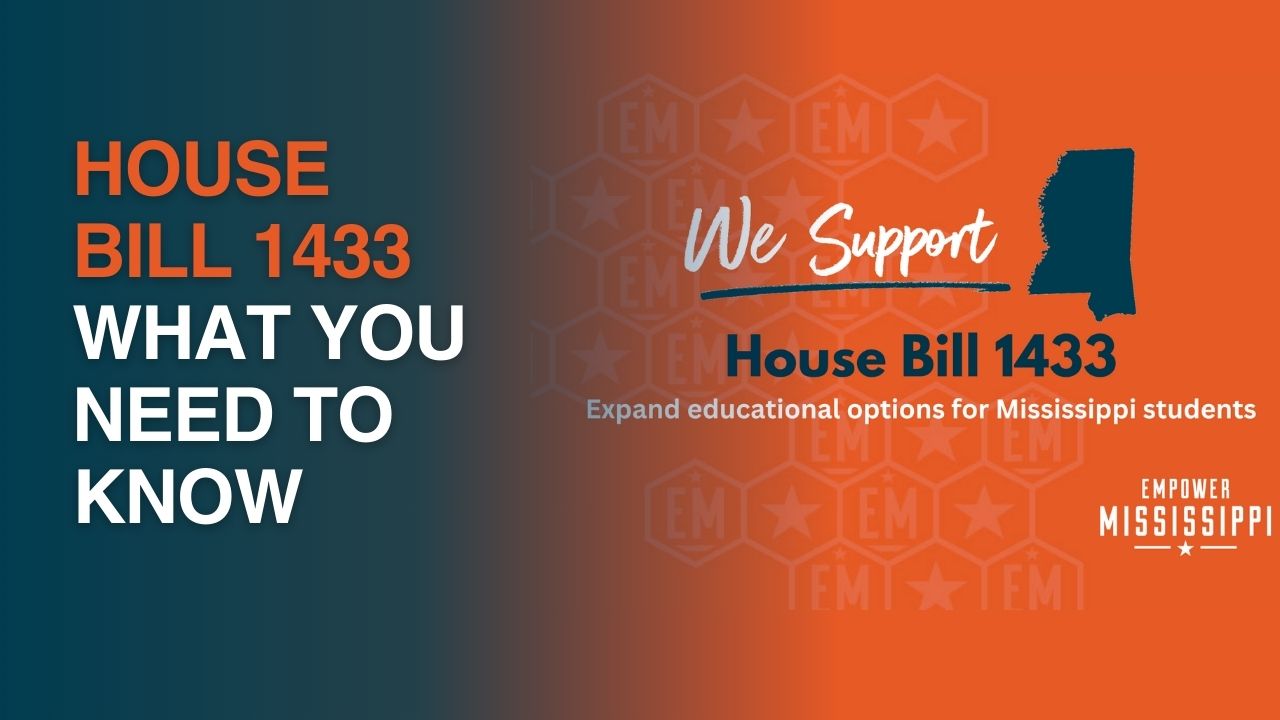HB 1433: What You Need to Know

Bill Summary and Why Do We Need It?
Currently, many students are trapped in public schools that fail to meet the student’s unique needs. Some families move to a different public school district or enroll their child in private school, but only if they can afford to do so.
This bill would allow students who attend schools or school districts with a D or F rating the opportunity to attend a school in a different public school district, subject to the district’s capacity to accept the student, or to use the state portion of their education funding to offset the cost of private school and other educational expenses. The bill names this program the “Flexible and Rightful Education Enrollment” program, or FREE.
The bill would also allow foster children to use the state portion of their education funding to offset the cost of private school and other educational expenses through a separate program, the Foster Child Education Scholarship Account (FESA).
This bill does not:
- Allow participation of any student currently enrolled in an A, B, or C rated district, unless that student’s assigned school or district was rated D or F in the last 5 years.
- Force a public school to accept any transfer student they do not have room for.
- Diminish the autonomy of private schools.
What are the financial implications of this bill?
This bill would require $5 million in new state spending (less than 2/10ths of one percent of the state’s K-12 education budget) and no increases in local spending. When a student chooses to participate in the FREE or FESA program, the state portion of the child’s education funding will follow that student to either a different public school district or to an accredited nonpublic school (or may be used for other qualifying educational expenses like tutoring and therapy). The local funding remains with the student’s assigned public school district, resulting in higher levels of locally-sourced per-pupil spending for the students who remain.
Common Concerns (and our responses)
Is the program Constitutional?
In short, yes. Here’s why:
- This program provides funds to parents for their educational expenses, not to schools directly. The U.S. Supreme Court in multiple cases has identified this as an essential distinction in whether a government program is constitutional.
- Mississippi already has 3 private school choice programs, including an ESA and two vouchers. None of these programs have been ruled unconstitutional.
- The Institute for Justice, which has successfully litigated school choice programs before the U.S. Supreme Court, has evaluated this question and determined that school choice is constitutional in Mississippi – under both the U.S. Constitution and the Mississippi Constitution.
- Other states have Constitutional provisions similar to Mississippi’s, yet their private school choice programs have been upheld.
- For example, Arizona has a Constitutional provision that prohibits the appropriation of public money to private schools, just as ours does; yet the Arizona Supreme Court upheld a unanimous decision by an Appeals Court affirming that Arizona’s ESA program is constitutional.
What about transportation?
Under this bill, if a student chooses to attend a public school in a different district, that district may, but is not required to, provide transportation for the student; if not, it would be the responsibility of the parents. Parents who choose to send their child to a nonpublic school may apply for reimbursement for documented transportation expenses, though there is no guarantee they will be reimbursed, especially since the funds available for this program could well be used entirely for scholarships.
How will this impact educational outcomes?
Some have asserted that this bill will not boost outcomes for students in underperforming districts. We strongly disagree. Competition in any sector is a proven way to improve quality and reduce costs. Making schools truly accountable to the parents and students they serve is one of the best ways to improve educational outcomes.
Would public school students who are “left behind” be negatively impacted by this legislation?
No. In fact, 25 different studies show positive effects of private school choice programs on public school student test scores. More options and increased competition lead to better results for all students.
Would this program harm private schools in any way?
No. Private schools have expressed concerns about school choice legislation, and we recently addressed those here. Section 19 of the bill specifically addresses private school concerns about government overreach.